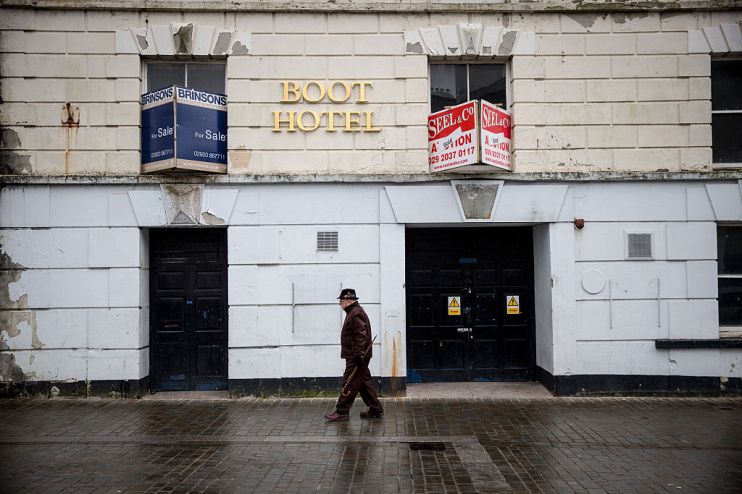UK incomes have stalled since 2016, but economists aren’t blaming Brexit

Incomes have stalled and inequality has risen in the UK since 2016, official figures showed today, highlighting the size of the task the government faces in “levelling up” the country.
The Office for National Statistics (ONS) said that growth in median income stalled between the 2016-17 financial year and 2018-19, growing on average 0.4 per cent a year. Between 2012-13 and 2016-17 it rose at an annual average clip of 3.4 per cent.
Read more: UK economy registers zero growth in final quarter of 2019
The slowdown came despite Britain’s booming jobs market, which helped wages rise at a strong clip over the last year.
However, the ONS said that wage rises were counteracted by the freeze on working-age benefits such as income support and child benefit, which remain locked at their 2016 cash values.
Britain has experienced “a lost decade of income growth,” said Adam Corlett, senior economist at the Resolution Foundation think tank.
“Crucially this has been driven by policy choices, with gains from higher employment more than wiped out by benefit cuts.”
The figures came ahead of the 11 March Budget, when chancellor Rishi Sunak is expected to reveal turn on the spending taps in a bid to “level up” investment across the country and help people whom Prime Minister Boris Johnson has said have been “left behind”.
For the poorest in society, incomes have fallen significantly in recent years, the ONS said. Median income for the worst-off fifth of people fell 4.3 per cent a year over the two years to 2018-19, after growing at an average annual rate of 3.4 per cent a year over the four years to 2016-17.
Tom Clougherty, head of tax at the Centre for Policy Studies think tank said: “These disappointing numbers underline the importance of the government getting the economy firing on all cylinders.”
He suggested that, in the short term, “broad-based tax cuts… will help to boost take-home pay, even if pre-tax earnings growth is sluggish”.
Those at the other end of the scale have also seen their incomes fall, although by a much lesser extent. The median income of the richest fifth fell between 2016-17 and 2018-19 by an average of 0.4 per cent a year.
The falls meant that by the end of 2019 average income remained lower than before the financial crisis.
Meanwhile, income inequality rose slightly over the two years to the financial year ending 2019. It reached 34.7 per cent on the ONS’s gauge, taking it back to roughly 2011 levels.
Read more: Bank of England’s Andy Haldane suggests overhaul of corporate governance laws
However, income inequality remained lower than the levels reached before the financial crisis. In 2018, it was 38.6 per cent by the ONS’s measure.
A key reason that income inequality fell after the crisis was that wages contracted but the welfare state supported the worst-off.